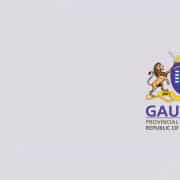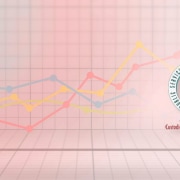|
Getting your Trinity Audio player ready...
|
By Kwazi Dlamini
Ethics: standards of right and wrong that prescribe our rights, obligations and benefits to society. Ethics is about how we ought to live, treat others, and run or manage our lives and organisations.
Report: State of Ethics, Integrity Management and Fighting Corruption in Gauteng (31 May 2022)
Tomorrow, 23 June, is marked across the continent as Africa Public Service Day, and is also commemorated by the UN as Public Service Day in terms of its resolution 57/277. Both occasions arise from a 1994 conference of African ministers for public or civil service held in Tangier, Morocco, where it was agreed that 23 June should be used to recognise the value and virtue of service to the community.
In South Africa, the Department of Public Service and Administration is the custodian of the event.
Chapter 10 of South Africa’s Constitution commits public servants in all tiers of government, organs of state, and public enterprises, to conduct their duties according to the following principles:
- A high standard of professional ethics must be promoted and maintained.
- Efficient, economic and effective use of resources must be promoted.
- Public administration must be development-oriented.
- Services must be provided impartially, fairly, equitably and without bias.
- People’s needs must be responded to, and the public must be encouraged to participate in policy-making.
- Public administration must be accountable.
- Transparency must be fostered by providing the public with timely, accessible and accurate information.
- Good human-resource management and career-development practices, to maximise human potential, must be cultivated.
- Public administration must be broadly representative of the South African people, with employment and personnel management practices based on ability, objectivity, fairness, and the need to redress the imbalances of the past to achieve broad representation.
The Constitution puts a high level of professional ethics at the top of the list, and for good reason – exemplary and ethical conduct will go a long way towards ensuring confidence in the public service, and giving residents and citizens what they need in an efficient and fair manner. Public servants, therefore, must put the public interest first in the execution of their official duties.
Sadly, this is often not the case. Except for pockets of excellence, the South African public service is generally perceived to be corrupt, incompetent, and self-serving.
In Gauteng province, at least, there are ongoing efforts to change this situation. On 31 May, Premier David Makhura launched a report titled State of Ethics, Integrity Management and Fighting Corruption in Gauteng. The report highlights the “tangible actions” that the provincial government has taken to promote good governance, working with entities such as the Special Investigating Unit (SIU), Public Protector, Auditor General of South Africa, Public Service Commission (PSC), and law enforcement and security agencies.
Those who profit from unlawful and corrupt dealings will fiercely defend their ill-gotten gains, often going to great lengths to frustrate any national anti-corruption effort to kill off the cash cow. And so, not forgotten were the invaluable contributions of whistle-blowers such as Babita Deokaran and Atholl Williams, who stood in the way of the greedy and corrupt and paid an extravagant price.
“Deokaran was killed in cold blood for opposing corruption in the Gauteng department of Health and Atholl Williams forced into hiding. Many other officials have been killed under suspicious circumstances because they fought and stood for what is right and lawful.
“This report highlights the work we have been doing to institutionalise integrity, as well as prevent, detect, investigate, and resolve criminal acts within the civil service,” said Makhura at the launch.
“The Gauteng Provincial Government (GPG) has drawn a lot of lessons in the work of promoting integrity and clean governance in the period when state capture was wreaking havoc in our country.”
Makhura also mentioned the feeding frenzy during the early days of the Covid-19 lockdown, when procurement regulations were relaxed to deal with the need to get emergency supplies quickly. The shameful actions of officials within the Gauteng Department of Health – and several suppliers – serve to illustrate that vigilance must be ongoing and nobody is above suspicion or above the law.
Four pillars of the report
The provincial strategy is underpinned by national mechanisms such as the Constitution, National Development Plan, and Public Service Regulations, as well as provincial strategies such as the Gauteng Governance Roadmap, the Gauteng Anti-Corruption Strategy, Gauteng Integrity Management Policy, and the Growing Gauteng Together 2030 initiative.
The State of Ethics report presents progress under four sections:
- Strengthening Prevention,
- Effective Detection,
- Coordination and Collaboration on Forensic Investigations, and
- Resolution and Consequence Management.
Strengthening prevention
The first section reports on implementation of the GPG’s preventative measures – these are proactive measures implemented to build a culture of integrity, including, among others, leadership setting the tone; financial disclosures; vetting of officials; ethics capacity building; and regular fraud and ethics risk assessments with a view to determine policy gaps and areas for improvement.
“Not only are these critical in the promotion of ethical culture within government, but they also help to eliminate any possible corrupt practices before they arise.”
Effective detection focuses on implementing pre-emptive strategies to deal with loopholes and ways that are used to commit fraud and corruption, thus helping the GPG avoid losing money and resources to greedy individuals. This will involve various technology methods to scan databases and immediately flag potential threats.
However, the use of technology must be complemented by encouraged whistle-blowing and the report calls for officials to raise allegations that need to be investigated.
This section also focuses on vetting of members of the Senior Management Service (SMS) in the GPG. The report says that out of 757 members, 668 had been vetted or are in the process and 84 members are dragging their feet, which is a serious concern and has raised suspicions within the GPG. The officials who are refusing to comply will be red-flagged and will undergo lifestyle audits.
Furthermore, Gauteng provincial departments have made a concerted effort to achieve 100% compliance at senior level in terms of financial disclosures. Since the 2016/2017 financial year the provincial government has not slipped below 90% in this goal and has achieved 100% in two financial cycles. Unfortunately there has been a low rate of compliance by non-SMS employees, for reasons such as low capacity in ethics offices and inability to properly monitor progress and compliance.
Effective detection
The implementation of proactive measures to detect activities or ways of working that could lead to fraud and corruption, the report states, is absolutely necessary to avoid losing money or other resources. “It is never good enough to catch the thieves when they have already stolen or caused reputational damage.”
Follow up and reporting on whistle-blower allegations will be the anchor in the implementation of detection strategies. The 24-hour Gauteng Ethics Hotline, a toll-free platform, allows GPG employees, contractors, suppliers and anyone vested in ending corruption to report unlawful and suspicious corrupt activities.
But again, the report raises concerns with the lack of protection for whistle-blowers. “The killing and intimidation of whistle blowers is undermining the fight against the scourge of corruption. “
Makhura has promised that the Integrity Management Unit together with the Gauteng Ethics Advisory Council are working on a whistle-blowing policy and framework. This will encompass putting systems in place to protect whistle-blowers from intimidation, victimisation and security threats. The framework will also address collaboration with law enforcement and other relevant bodies for witness protection programmes.
Detection will also look into exposing and dealing with public servants conducting business with the state. The Public Service Act bars employees from performing or participating in other remunerative work outside their department of employment unless they have permission to do so. But according to the report, a considerable number of employees within Gauteng government are directors of companies doing business with the state, especially in the departments of health and education. Makhura has vowed that his office will work closely with the Department of Public Service and Administration to sanction and open criminal cases against the implicated officials.
“The leadership and management of government departments need to regularly and practically demonstrate that fighting corruption is the responsibility of every employee within their organisations. Management should participate in relevant training and support the implementation of integrity management programmes,” he said.
The United Nations Office on Drugs and Crime recommends similar measures for detection, monitoring and investigating of allegations of corruption. Detecting, investigating and resolving corruption cases successfully deters future offenders from committing the act, knowing that chances of getting away with the dirty money have been reduced.
Coordination and collaboration on forensic investigations
This chapter reports on collaboration efforts between the GPG and other public agencies and private sector institutions to conduct investigations. The GPG has deployed all resources to push for urgent attention of corruption and fraud allegations by institutions like the SIU. This will drive robust consequence management.
The GPG or whistle-blowers have referred 15 cases to the SIU and these relate to cases of misconduct by officials, irregular expenditure, maladministration and irregular appointments of service providers. These SIU investigations have led to the dismissal of a number of officials, while others resigned. Civil recoveries and litigation against service providers are under way.
The Office of the Premier is also working with the PSC and has referred 102 allegations of corruption against GPG departments. Of these, 65 have been investigated and resolved while investigations for 37 are still ongoing.
“The Gauteng Department of Health has the highest number of cases that are being investigated by the Public Service Commission and they have made specific observations and recommended remedial action on matters affecting various departments, especially the health department,” said Makhura.
The Public Protector received 43 allegations of corruption against Gauteng departments, seven of which have been resolved and 36 of which are still under investigation. The departments of health and education are again fingered, with the highest number of cases reported, relating to maladministration, irregular appointments and supply chain management.
The Gauteng Anti-Corruption Strategy, Makhura noted, seeks to prioritise anti-corruption awareness programmes which result in reporting and investigation of cases of alleged corruption. In this regard it refers to the UN Handbook on Practical Anti-Corruption Measures for Prosecutors and Investigators, which identifies four key responses to corruption:
- Criminal or administrative prosecutions, leading to possible imprisonment, fines, restitution orders or other punishment;
- Disciplinary actions of an administrative nature, leading to possible employment-related measures such as dismissal or demotion;
- Bringing or encouraging civil proceedings in which those directly affected (or the state) seek to recover the proceeds of corruption or ask for civil damages; and
- Remedial actions, such as the retraining of individuals or restructuring of operations in ways that reduce or eliminate opportunities for corruption (but without necessarily seeking to discipline those involved).
Resolution and consequence management
For this to be effective, departments and other provincial entities need to implement the recommendations that come out of an investigation. The Provincial Forensic Audits Division is responsible for tracking the implementation of these recommendations and can further assist affected departments with opening criminal cases based on investigations.
The report says that investigations into various Gauteng departments yielded 1 199 recommendations between the 2017/2018 and 2021/2022 financial years. The relevant departments have attended to 94% of the recommendations, of which 744 recommendations have been fully implemented and 382 are in the process of implementation. Only 73 have not been implemented.
Both the Integrity Management Unit and Provincial Forensic Audit Division are working with departments to ensure these recommendations are implemented and they include disciplinary action, criminal charges and recovery of funds.
Makhura encouraged MECs and heads of departments to administer consequence management to deal with corruption; he is also working with the Asset Forfeiture Unit to pursue cases for civil recovery where applicable.
Investigations can only be successful through the implementation of the recommendations and failure to do so does not discourage corrupt individuals. Rather, it encourages them as they are aware there will not be consequences.
This is what the State of Ethics report seeks to fight and address, through recommendations, areas of intervention, monitoring and evaluation, compliance, and collaboration.
“We know that citizens want to see concrete results that will bring about an end to corruption now.”








